Tallinn Music Week Conference 2024: Music Tech and Investing in Music

Music Tech and Investing in Music. Foto: Tallinn Music Week
Tallinn Music Week Conference 2024: Music Tech and Investing in Music
Key Quotes & Outtakes Nordic Hotel Forum Conference Centre, 5 April 2024
With emerging technologies offering significant growth potential and positive impact for music businesses, communities and artists, there is a critical opportunity to strengthen the links between these sectors. TMW 2024 conference brought together experts from music, tech and beyond to explore how we can lead the way in digital innovation and entrepreneurship and how we should always remember that in music content is the king that adds value to any content, service or product.
Don’t miss the insights and key quotes from this session by the representatives of e-Residency, Music Tech Europe and more that will help shape your business model for years to come—and the profound global impact it will have on our industry.
All TMW 2024 conference panels and presentations will be available for replay in full for the holders of TMW PRO and DigiPRO passes via the TMW DigiPRO platform. Sign up for the PRO Pass via TMW Shop and get access to the full 2024 and upcoming 2025 programme now!
Keynote by Liina Vahtras, Managing Director of e-Residency:
Setting up a global business, how can e-residency help
Estonia was the first country to offer e-residency, starting in 2014. It remains the most popular programme of its kind that allows individuals to start and manage a business in a foreign country without the need to physically relocate, offering a seamless bridge to international markets and digital services, heralding a new era of global entrepreneurship.
The keynote speech by Managing Director of e-Residency Liina Vahtras gave us an overview of how technology can benefit music entrepreneurs worldwide.
Key Quotes
e-Residency helps you to run your business borderless. While music does not have borders and it flows, the music industry entrepreneurs still face technicalities that are bound to the countries that they operate from.
99% of our public services are digital. And whether you’re an artist, a record label, a distributor, or a music tech startup, you can, through e-Residency, securely authenticate yourself and then sign anything digitally. Essentially, Estonia created this digital citizenship for anyone from anywhere.
If you’re a small business registered in the EU, it usually takes approximately 50 hours to run your business annually. It takes you more than double this time if you’re based in the UK, and it takes you triple this time if you’re based in Germany or in the US. Imagine if you could spend this time on creative work!
There are over 110,000 e-residents globally from over 185 countries. Together, those e-residents have created over 30,000 companies. So every fifth company created in Estonia is created by an e-resident. And a third of our startups are created by e-residents. Among those companies there are thousands of creative industry companies and over 100 music industry companies.
On top of the fact that there are so many like-minded people that you can reach out to, start new projects together, or become partners or find employees, there is also a team of people who would be helping you.
The Estonian e-Residency is a government-issued digital identity that gives global entrepreneurs remote access to the most digital country in the world. It provides the ability to securely authenticate online and sign documents using the most secure and efficient electronic signatures and the ability to start a business 100% online from anywhere. Estonia was the first country to offer e-residency, starting in 2014. It remains the most popular programme of its kind for ambitious entrepreneurs. Learn more about the e-Residency of Estonia
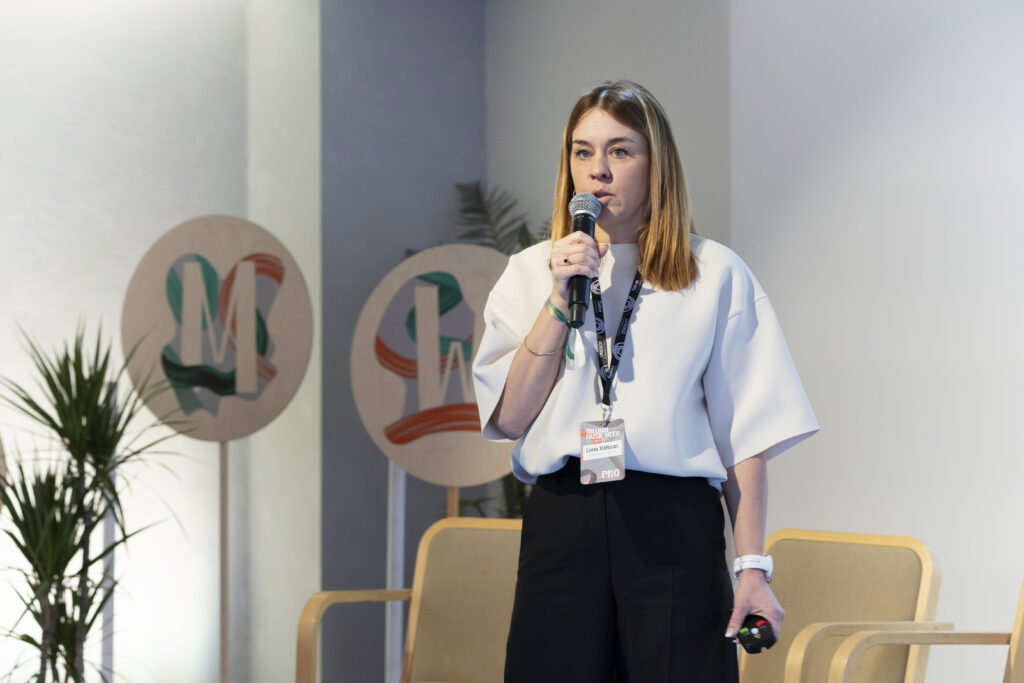
Presentation and talk by the founders of Music Tech Europe
Turo Pekari, Innovation and Business Development Executive of Music Finland
Yvan Boudillet, VP, Public Policy at Utopia Music
Key Quotes
Turo Pekari:
Music Tech Europe aims to be the umbrella body of both national music technology associations as well as music industry bodies representing different types of organisations, determined to develop and accelerate innovation in the music sector.
We are idealistic people and we really believe that the future of the music business is not just about tech or the traditional old-style business. It has to be both of them to make something meaningful in the future. We are trying to build bridges between new companies entering this space, startups who want to offer their services to the music industry and to help companies in the music space—labels, publishers, managers, also directly artists and songwriters—to understand how they can actually develop their business, collaborate with international people and be more successful with the help of the technology sector.
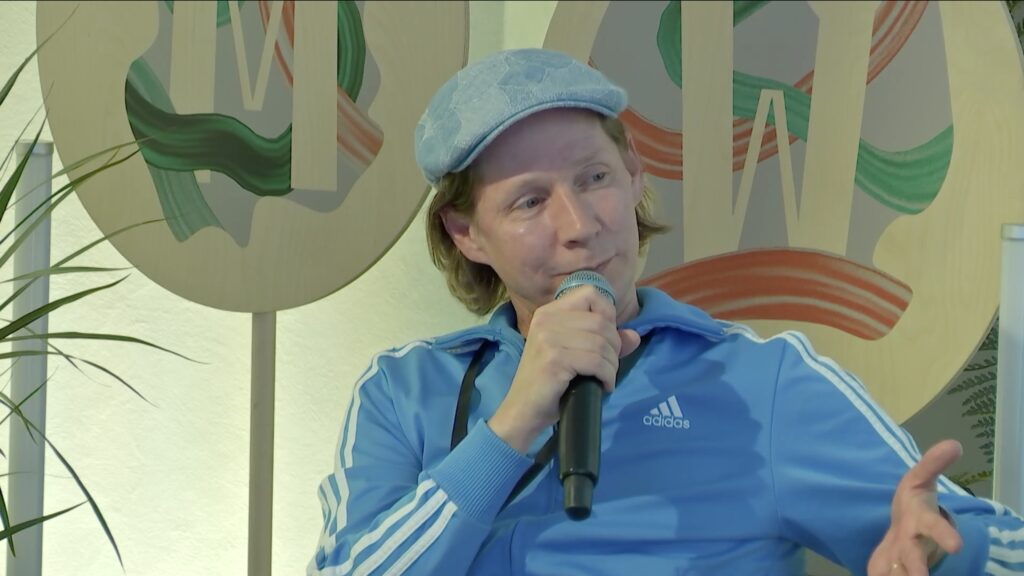
Yvan Boudillet:
Music Tech Europe is basically a network of networks and hubs.
It’s all about collaboration, knowledge sharing, and experimentation—innovation as a driving force for transformation of our ecosystem with technology as a tool.
We still need to bring more diversity to the music and tech world. I think in France, only 8% of the founding members of startups are female or of diverse profiles. So, we need to change.
Innovation is part of the music sector. It’s not about disruption, it’s about change. We can make a change in the culture by working together.
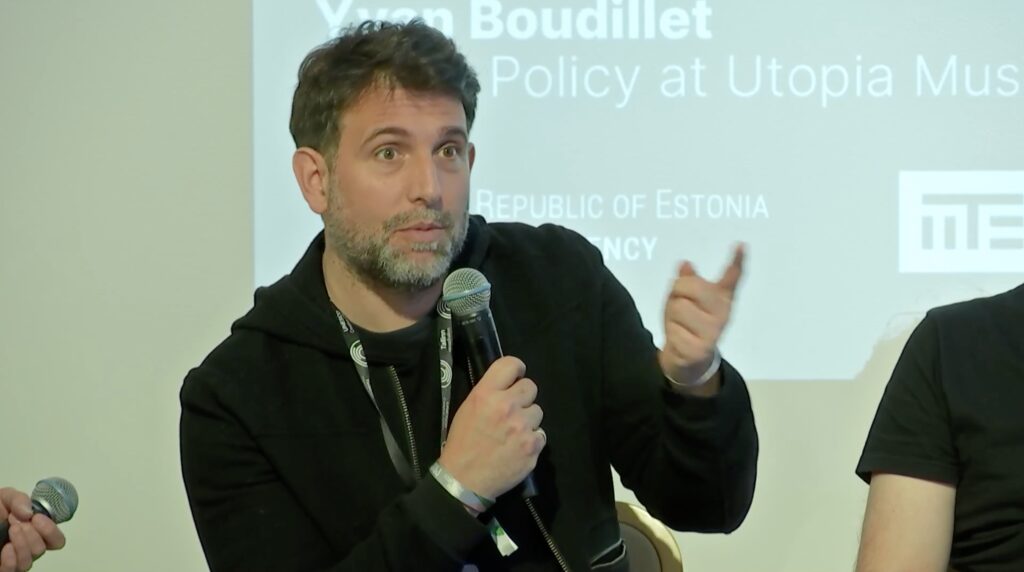
Music Tech Europe is the umbrella association of national music technology associations and music industry bodies representing institutions and organisations that are determined to develop and accelerate innovation in the music sector.
The association brings together its stakeholders at European level and is the largest and most representative organisation for the European music tech ecosystem. More info
Panel: Investing in Music
Riku Salomaa, Managing Partner at Nordic Music Partners
Iara Dias, Founder and CEO of Meexd
Nina Rudanko, CFO at IPR.VC
Reigo Ahven, Musician, founder of Fairmus, Phillyjoes.tv and Fanvestory
Jevgeni Kabanov, President of Bolt
Key Quotes
Riku Salomaa:
I think the biggest problem that we’re facing is that the public sector doesn’t really see music as innovation, which obviously it is. We innovate on a daily basis. Every time songwriters get in the room and start writing songs, that’s innovation.
The key thing about music IP is that it’s a very long term business and a very long term income stream. It’s slow in the beginning, but when the catalogue is big enough and the money starts flowing in, it does that for a long time.
We did music on the latest Remedy Entertainment video game “Alan Wake 2” that just came out in the fall last year. We wrote and produced title songs for the seven episodes in the game. It takes a bit of creativity to build a model that’s encouraging and motivating enough for the creators because the gaming ecosystem sets certain limitations to how the income is generated for music. Game streaming has become such an important part of marketing games, so you need to be sure that no takedowns or mutes interfere with the streaming. That creates a bit of a challenge for the whole model.
The gaming sector is really interesting for music in the years to come. Mobile game companies are putting more and more effort into music because in a couple of years people are going to play those games with the Apple vision glasses on and earphones on. So they actually need to invest a lot more into the music, which the AAA games have already done.
The sort of superfan engagement side of things is still something that is yet to be explored fully in music. Spotify doesn’t recognise who is a random listener and who’s a superfan. There’s actually a lot of potential on that side.
We should always remember that in music content is the king and music adds value to any content, to any service, to any product, any offering. So investing into music, be it as a part of a TV commercial or whatever, it makes the product stronger, delivers the message stronger. SoI think music should always be seen as a good investment to the end product, whatever it is.
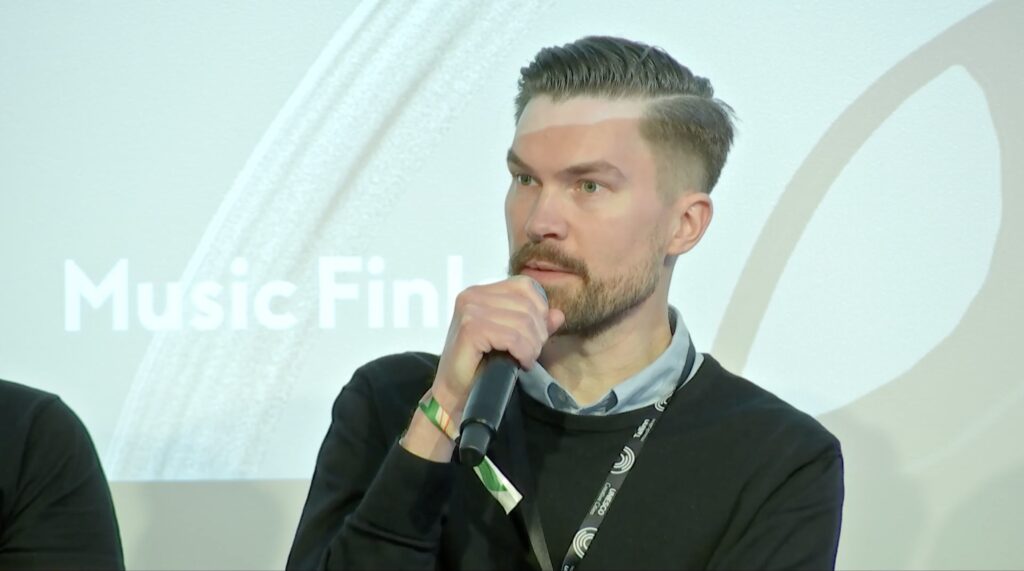
Nina Rudanko:
We have been investing in film productions, where one of the sales arguments from our side towards our investors is that the time from the investment to the revenues is not so long. We do the investment in a film project and when the project is sold, when it’s on Netflix or somewhere else, we can start returning the money to the investors. In music the time horizon is much longer because you need to build up the name or the brand and then at some point you can start selling those catalogs and so on. So currently we are sticking to films, but I’mt convinced that the music will grow a lot.
Cross-fertilisation with gaming, other industries and music can create quite new things that we are not even aware of right now. That will then generate investor interest. But it’s something that you need to teach to the investors. It’s very much about how you communicate these new ideas to your investors who are not into details of these new businesses.
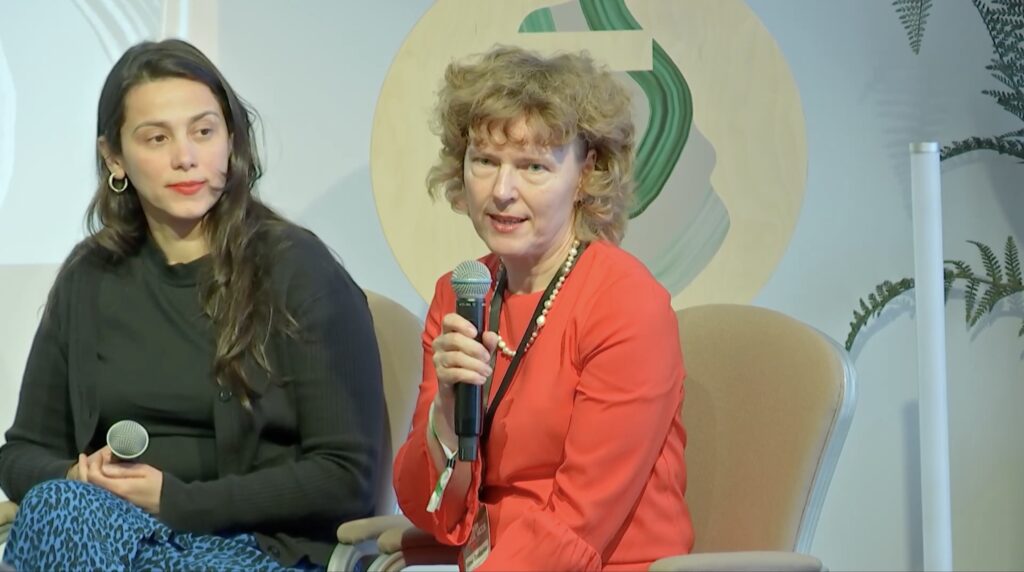
Yvan Boudillet:
Music can be and is about innovation and also potentially scalable innovation.
Nowadays the public sector is also looking for scalability, for the unicorns. In France, Macron, our president, talks about unicorns every day. I don’t know if it is good or not. But I’m just saying that music can also be in this list. In France, as part of the top 50 companies who have the support of the public sector and the government as champions of innovation, we have two music companies, Believe and Deezer.
We need music to become a mature market with some numbers to show and with the growth documented in many ways.
We need to convince ourselves that technology can be for good and for increasing value.
Jevgeni Kabanov
In the music industry the market size is often smaller, but it’s also really under-competitive. There are very few investors who truly understand the space. So basically, if you compare it to software as a service deal for B2B, then as an investor, the returns you can get are likely higher. But I think that for me, the problem has been finding those deals.
The music consumption is quite well monetized, but everything else is still very poorly supported. Artist life cycle is very manual and still down to labels developing artists. There’s very little tooling, very little support to understand little data.
If you compare the music sector to most other industries, then it’s a really underdeveloped. Digitisation and data layers are really weak. There’s going to be a huge jump, and this is not even to bring in AI, which is now writing music, but it’s definitely going to augment a lot of both production and performance. And there’s a lot of opportunity to create meaningful businesses and help artists grow.
Money flocks to the most obvious opportunities first and then starts to move.
I think music is specific because it’s such a complex field. I just started to understand the interplay between the songwriters, the producers, the musicians, the bands, the labels, the distributors. It’s like a web of complexity that if you’re looking in from the outside you have no idea how it’s actually happening. And I think that’s one of the things that has stopped money flowing into music, except maybe in some very specific cases where it’s buying catalogues and monetising consumption. But it’s also an opportunity for investors to find really great opportunities and for entrepreneurs to build great companies.
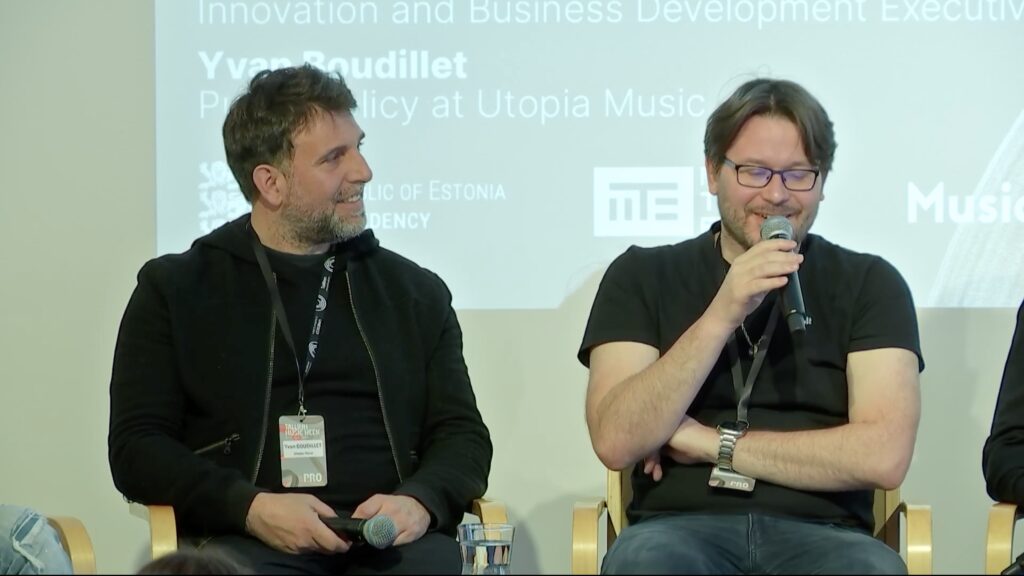
Iara Dias:
We as an industry in general can learn a lot about how to create businesses that are scalable.
We were leveraging technology to create fan experiences in the virtual environment. Definitely a lot of opportunities there. But we also faced a lot of this trauma of new technologies from back in the day. So you have to convince people for months that this is going to be cool. But at the end of the day, when it happens, everyone is like, “Wow, that’s so cool. Let’s do more of this!”
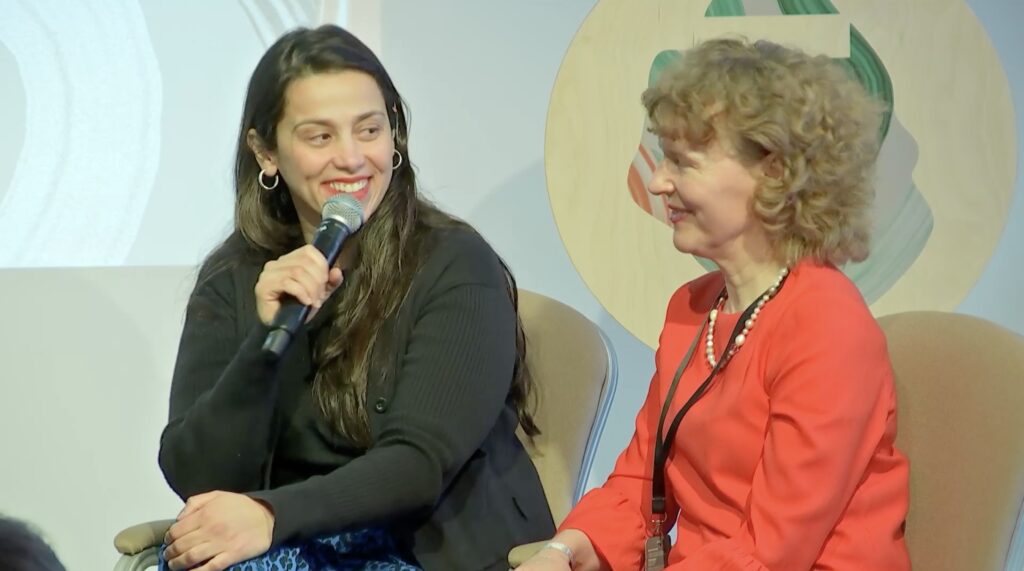
All TMW 2024 conference panels and presentations will be available for replay in full for the holders of TMW PRO and DigiPRO passes via the TMW DigiPRO platform. Sign up via TMW Shop and get access to the full 2024 and upcoming 2025 programme now!